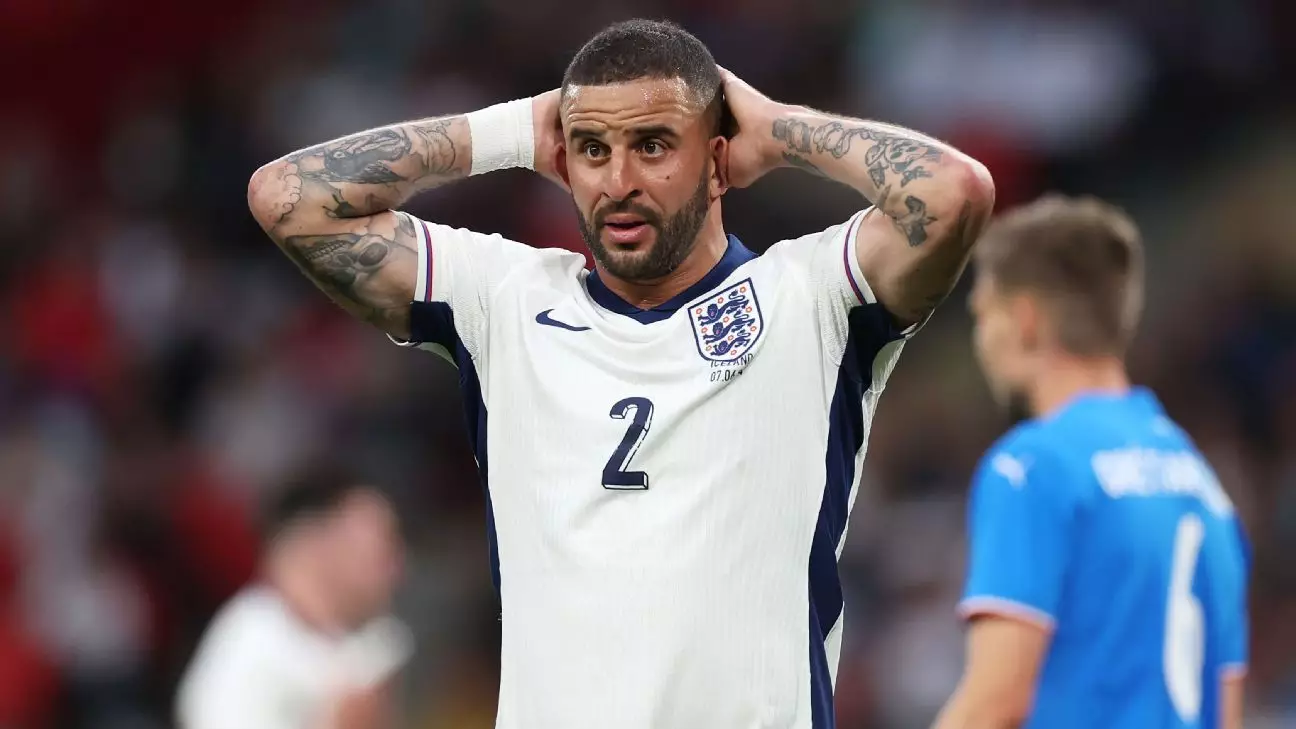In the world of football, the delicate balance between club commitments and international duties can often lead to complications, primarily concerning player fitness. The recent comments from Manchester City manager Pep Guardiola reflect an urgent need for improved communication between club coaches and national team managers. This necessity was underscored by the injury of Kyle Walker, who returned to his club side after international duty with a knee issue. Such injuries not only impact a player’s performance but can also disrupt the tactical plans of clubs competing in various leagues and tournaments.
Guardiola’s frustration was largely directed at the lack of dialogue concerning player conditions between national teams and clubs. As reported, Walker missed Manchester City’s match against Wolves due to his injury sustained while representing England in the Nations League. This incident highlights a more considerable concern within the footballing community regarding the communication breakdown that exists; injuries obtained during international friendlies or tournaments can have severe consequences on club performance, especially in high-stakes matches.
Pep Guardiola reminisced about a time when international managers would directly communicate with club managers, contrasting sharply with the current climate in which such interactions are rare. His frustration was palpable when discussing past experiences, particularly referencing John Stones’ injury during a friendly match that left him enraged. Guardiola feels that the collaborative spirit seen in previous years has waned, contributing to player welfare concerns. Such an environment creates potential rifts, potentially undermining the ethos of teamwork that football is built upon.
While players are undoubtedly passionate about representing their country, the financial and competitive stakes for clubs are monumental. Guardiola’s concerns bring forth the question of player priorities, looking to balance national glory with club responsibilities. The lack of transparent communication channels makes it hard for clubs to prepare adequately when players return from international duty, particularly if they arrive with injuries or fitness concerns.
In the wake of Guardiola’s comments, it is apparent that a shift in mindset is necessary for both club and international managers. Establishing clear lines of communication is essential for the welfare of players and the integrity of the sport. Regular updates on player conditions, especially after matches, could foster a more cooperative environment where players’ best interests take precedence.
As Manchester City prepares for critical fixtures, including a Champions League tie, Guardiola’s insights should act as a catalyst for change within the football community. The return of star players like Kevin De Bruyne from injury signifies the delicate dance club managers perform, making every match a potential gamble based on players’ readiness. Tackling the communication issues head-on could not only improve player fitness management but also elevate the overall quality of football played at both the club and international levels.
Ultimately, the call for improved dialogue between club and national team managers is not merely a suggestion but an essential development in protecting and maximizing player potential. In a game where every match counts, fostering teamwork across borders is critical for players to perform at their best, ensuring that clubs can pursue their ambitions without the looming worry of unexpected injuries from international commitments.

